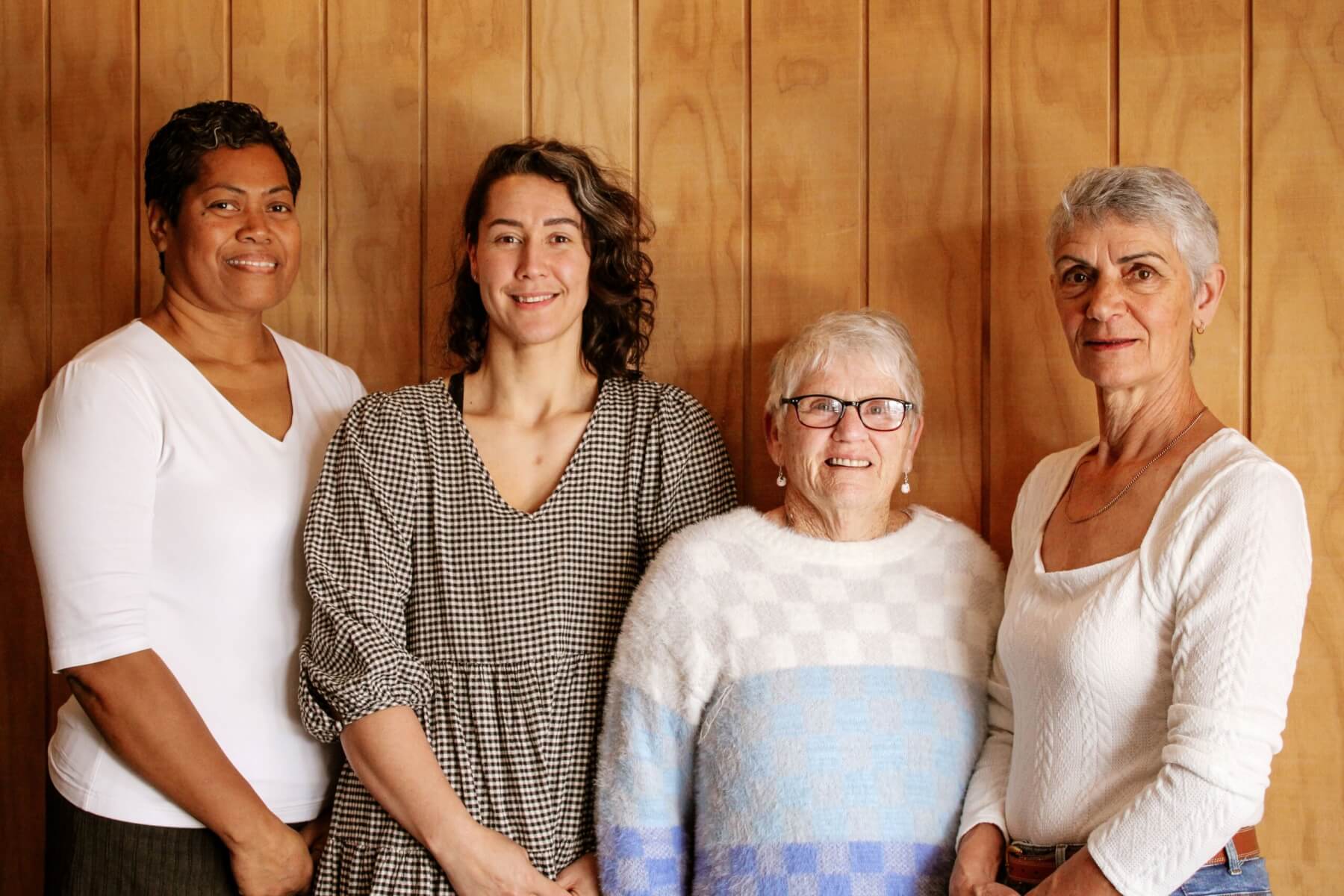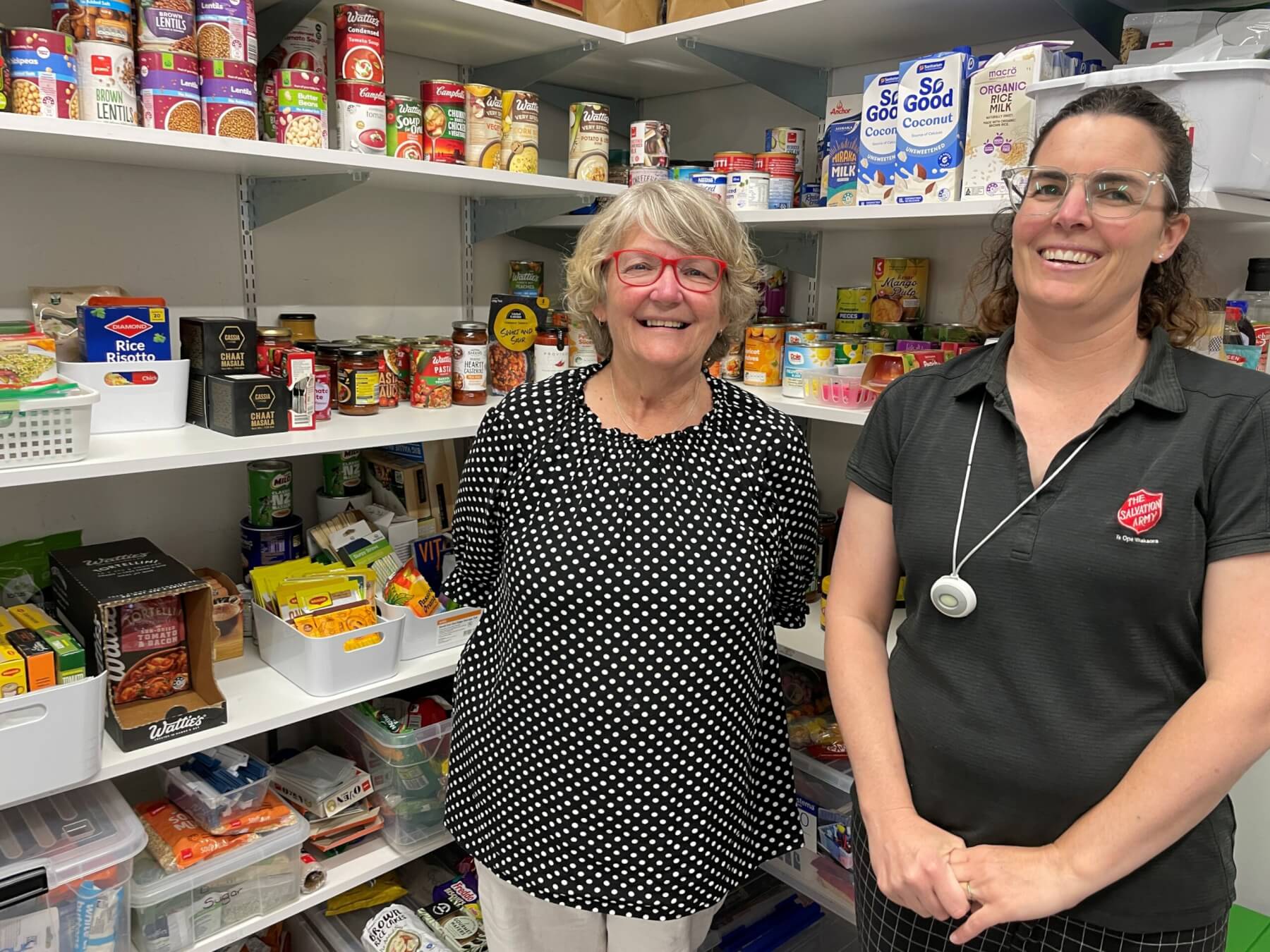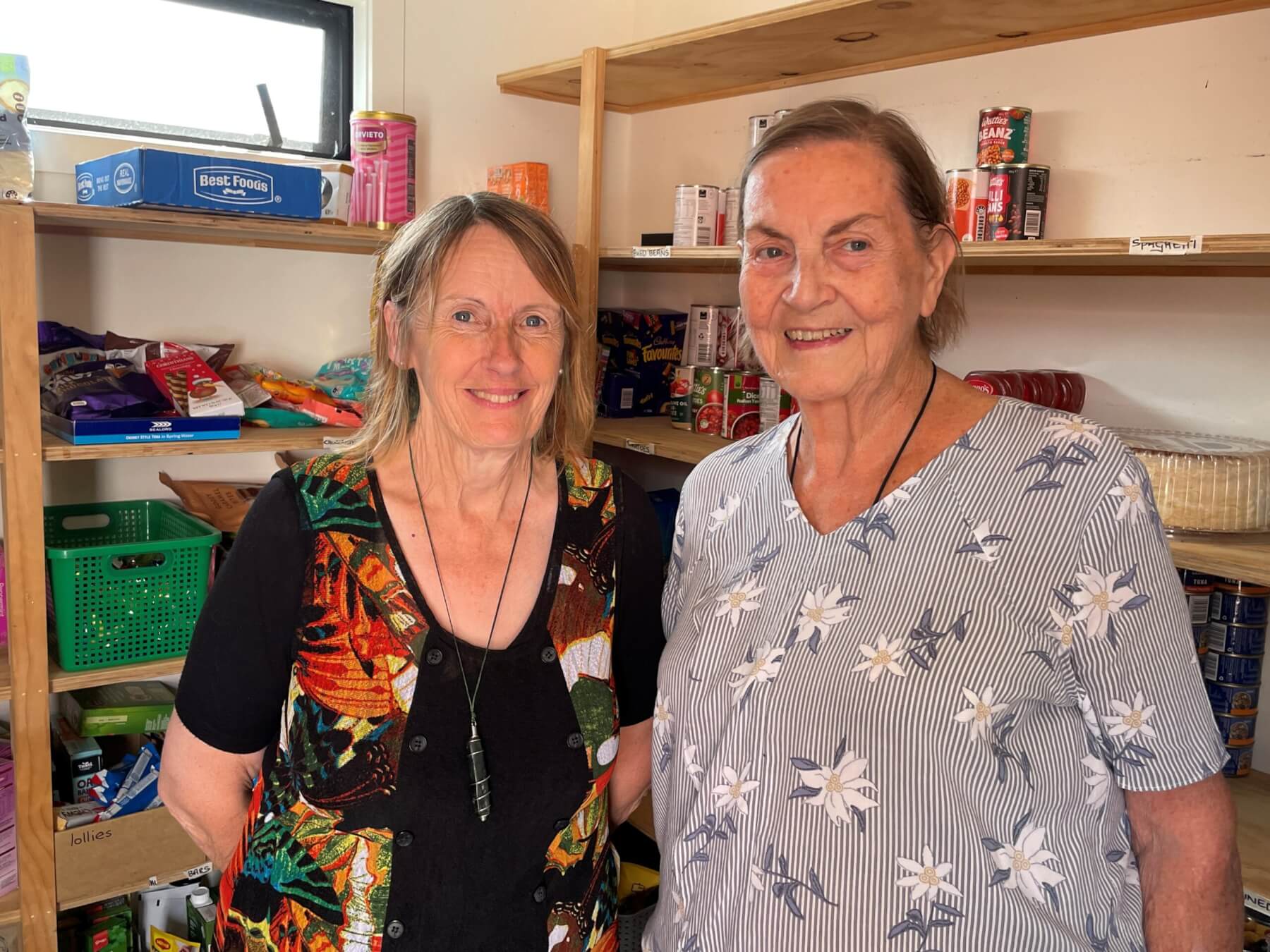The post-Christmas strain is showing in Waipā and the King Country. Chris Gardner checks on the region’s foodbanks and find a consistent story – the demand for help continues to grow.
Sue Goodridge, left, and Rita Middleton
Te Awamutu Combined Churches Foodbank needs more food, more space to store it, and more volunteers to pack it, as post-Christmas demand busts records.
Foodbank co-ordinator Rita Middleton has a growth story that nobody wants to hear.
“Our demand is huge, with an increased in needs over two years,” she said.
Demand in that time has almost doubled.
Volunteers handed out 784 parcels last year, compared to 500 in 2023, and 400 in 2022.
“In the first week back after the Christmas break, we handed out 23 parcels,” Middleton said. “It really is a matter of people coming to us and saying, ‘we have no food to feed our children’.”
If demand continued at that rate throughout the year the bank would need to provide nearly 4000 food parcels.
“It’s poverty, or poor management of finances, but who am I to judge?,” Middleton said.
Food is donated by churches, individuals, supermarkets, and the Kaivolution scheme, as well as funded through cash donations.
“We spend around $500 a week on groceries,” she said.
While the shelves are far from empty, Middleton said there was a strong need for the staples as well as supplies for new mothers such as baby wipes and nappies as well as feminine products.
The foodbank does not need any more cat food.
“We have two or three large boxes of it,” she said.
As demand increases Middleton said, so does the need for storage and the organisation is quickly running out of space. She also needs people to help prepare food parcels and deliver them in some cases.
“We need more volunteers,” Middleton said.
The Kainga Aroha Community House financial mentor said she had seen 120 clients since July, three quarters of them being new.
“I have given out 42 food parcels since July, the previous year it was 37.”
“So many people have got mortgages and are concerned about mortgage repayments,” she said.
Her biggest worry was single mothers who were struggling to pay the rent.
“They can be charged $460-600 a week.”
“I try and say save 10 per cent of your income a week and pay yourself first.”
The demand for food parcels from the Cambridge Corps of the Salvation Army food bank could reach record levels, as the post-Christmas credit crunch catches up with the community.

Mere Vono, Deeana Bradley, Leone Kretschmer, and Rowena Bradley.
“Demand for food parcels is definitely increasing,’ said Salvation Army community engagement team leader Julieanna Seath.
“There was a stage last year’s where we were giving away in excess of 100 parcels per month,” she said.
“We are currently sitting at about 80 per month but with the Government making cuts, Christmas expenses, back to school costs, I would not be surprised to see it increase to more than 100.”
The food bank supplied up to 130 parcels a month in 2023.
Seath said it was not just beneficiaries and the homeless looking for help, but people from dual income families who found finances stretched through no fault of their own.
The Salvation Army operates a model where food bank users given credits to spend in the store so that they can pick what they need rather than being given a pre-packed box of groceries.
The Salvation Army also regularly helps people with clothes and furniture, as well as well as the growing homeless with a shower, Seath said.
“We always have needs, and we always happily take donations. Our community has been absolutely amazing,” Seath said.
“We have some really big donors, including one who comes in with $2000 worth of groceries for us a couple of times per year. Some farmers kill an extra beast, have it cut up and put in our freezer, and clubs, organisations and schools donate.”
Around $1000 a week is spent on supplementing the foodbank to ensure it has enough stock.
Te Kuiti Food Bank delivers weekly food parcels to the town’s schools from Journey Church.
“We deliver five parcels a week that the principals can pass on to the families who really need it,” said Journey Church senior pastor Terry Bradley. “Some of the people who really need it tend not to come and get help.”
Bradley said the initiative became consistent about six months ago.
A further 15 parcels a week are handed out by the foodbank on the two days it is open, bringing the total up to about 20 parcels a week.
“We handed out eight parcels today,” Bradley said of the Sheridan Street operation on Monday.
The foodbank is mostly funded by the Ministry of Social Development, with some community donations, including $30,000 worth of parcels distributed just before Christmas.

Cambridge Corps of the Salvation Army community engagement team leader Julieanne Seath, left with community wellbeing officer Anneka Vuletich.










